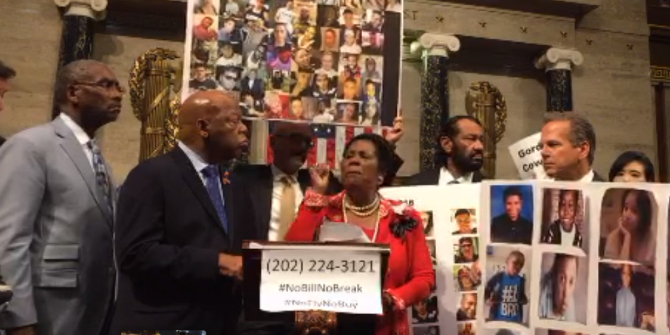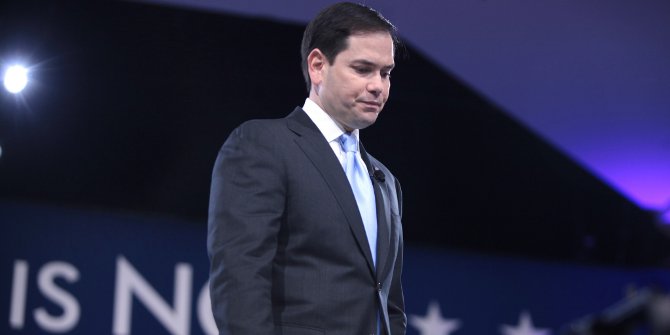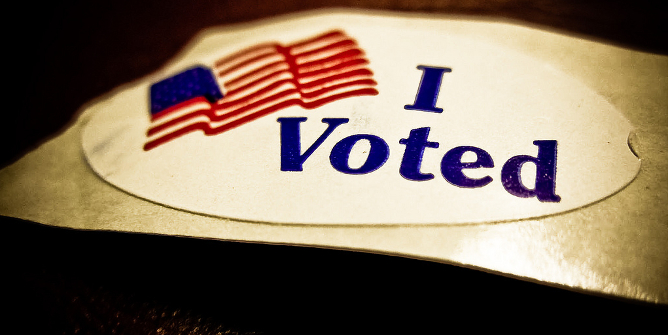 With 99 delegates, Florida is one of the most important states in this stage of the presidential primary season. Tuesday’s Republican primary saw Donald Trump win all but one of the Sunshine State’s 67 counties, and all of its delegates. Rolda L. Darlington writes that while the results were not surprising, they were devastating for the state’s US Senator Marco Rubio, who had been banking on a win there to stay in the presidential nomination race.
With 99 delegates, Florida is one of the most important states in this stage of the presidential primary season. Tuesday’s Republican primary saw Donald Trump win all but one of the Sunshine State’s 67 counties, and all of its delegates. Rolda L. Darlington writes that while the results were not surprising, they were devastating for the state’s US Senator Marco Rubio, who had been banking on a win there to stay in the presidential nomination race.
The Florida story is becoming more and more familiar as the election years come and go. The narrative begins during the primary season and sounds something like, “If he wants to win the nomination, he needs to win Florida.” Maybe it starts with proclamations from the punditry which sound like, “Florida voters can determine the direction of the entire primary race tonight!” The influence of the Florida primary results may vary, but a hubbub is made every election year. The lead-up to this year’s primary played much the same as usual; the Sunshine State received a significant amount of attention from the candidates and their campaigns. The media made certain to highlight the state in news headlines and voters began to have flashbacks of NBC’s Tim Russert and his iconic whiteboard.
The results of the Florida primary were not nearly as groundbreaking and fantastical as was originally projected, however. In a number of ways, as the vote total rolled in, voters and viewers heard the most unremarkable of outcomes. Donald Trump, businessman and real estate developer, won a plurality of the vote and therefore, all of the 99 delegates in the winner-take-all state. Trump finished with 45.7 percent of the total vote, followed by U.S. Senator Ted Cruz (R-TX) with 17.1 percent, and Governor John Kasich (R-OH) with 6.8 percent. Hillary Clinton, Former Secretary of State, Former New York Senator, and First Lady, won the contest in the Democratic race. Clinton claimed the lion’s share of the delegates by receiving 64.4 percent of the overall vote to U.S. Senator Bernie Sander’s(R-VT) 33.3 percent. As predicted, Clinton won with voters over 65, taking 71 percent of the vote, while Sanders was only able to garner 23 percent. The Vermont Senator held on to the 18-29 year olds, earning 65 percent of the vote to Clinton’s 34 percent.
The most compelling part of this story, which always seems to begin and end with Florida, has little to do with the final vote total. Many of the candidates vying for their party’s nomination dedicated a significant amount of campaign funds, effort, time, and staff to the Florida race. When all of the votes were tallied and all of the precincts reported, the Republican candidate with the most to lose by failing in Florida, Marco Rubio, fell the hardest.
Rubio, one of Florida’s sitting Senators, was only able to win 27 percent of the vote in his home state. Before the results were completely in, Rubio gave a speech announcing to his supporters that he would be suspending his campaign. Well before March 15th, primary voting day for five states across the country, it was said that if Rubio could not win his home state, he could not win the nomination and should drop out of the Republican race. Rubio and his campaign took the gamble nonetheless, and was forced to submit to defeat. The loss was devastating for the candidate, the Rubio campaign, and his supporters and voters, with results showing that he only won one of the sixty seven counties in the state. Miami-Dade County, the county where Rubio lives and works, was the only county that delivered a win for the Senator, with a convincing 63 percent of the vote, but he was woefully unsuccessful throughout the remainder of the state. All of the other counties went to Rubio’s rival, Donald Trump.
Florida did not revisit the notoriety it gained in the 2008 primary season. The state followed the rules and was not stripped of its delegates by the Democratic National Committee (DNC) as happened eight years ago after the state moved its primary to take place before Super Tuesday. Florida also avoided bringing shame to the entire voting process via the hanging chad or any other voting shenanigans. For the most part, the primaries in Florida last Tuesday were uneventful. For the Presidential hopes of one candidate, however, the results of the Florida primary veered dramatically from the predictable story line. The story of a candidate for US. President losing his home state is one Marco Rubio hopes to never hear again.
Featured image: Marco Rubio Credit: Gage Skidmore (Flickr, CC-SA-2.0)
Please read our comments policy before commenting.
Note: This article gives the views of the author, and not the position of USAPP– American Politics and Policy, nor of the London School of Economics.
Shortened URL for this post: http://bit.ly/1RoNZeI
_________________________________
 Rolda Darlington – University of Florida
Rolda Darlington – University of Florida
Rolda Darlington is a PhD student at the University of Florida. Her research interests include minority and gender politics, Congressional studies, American institutions, civic education and participation, and Democratic Representation.






